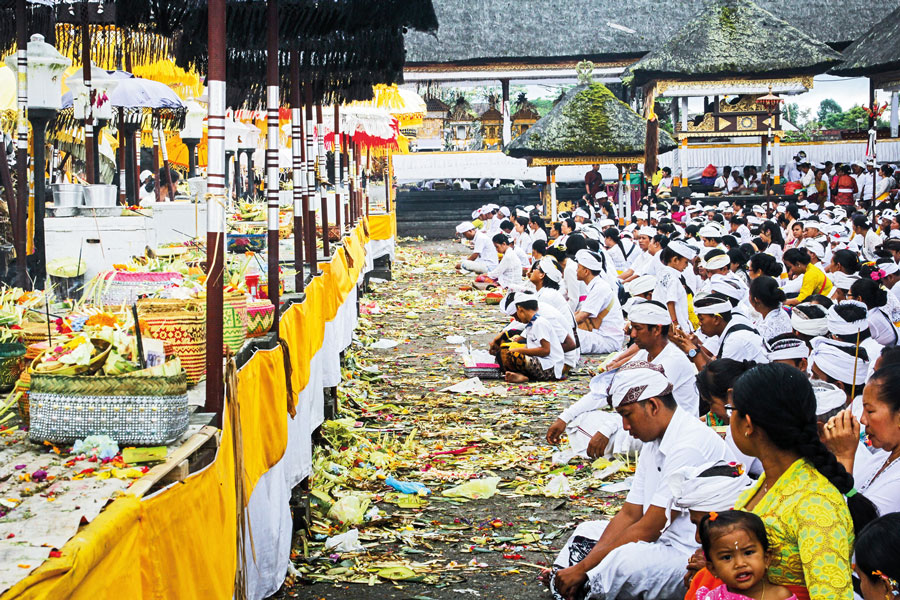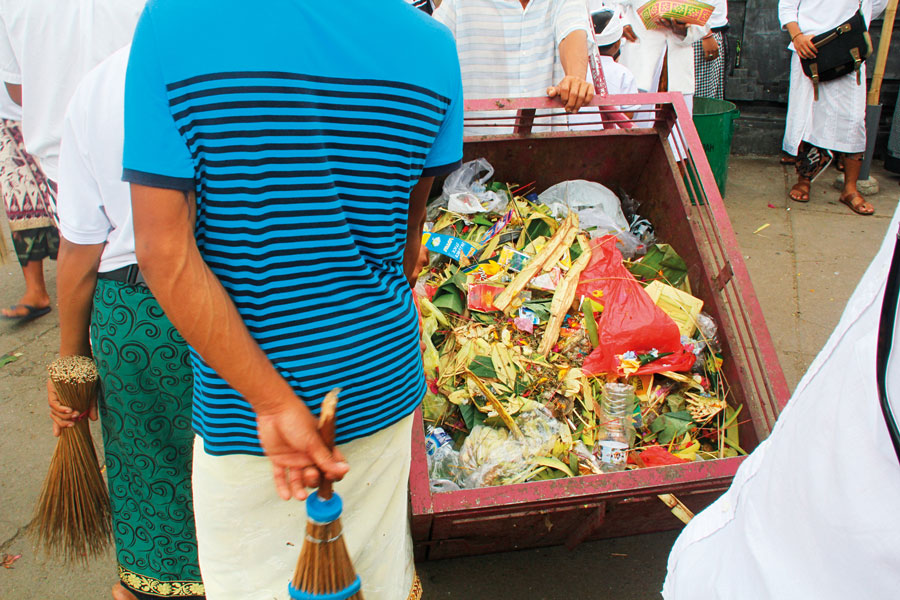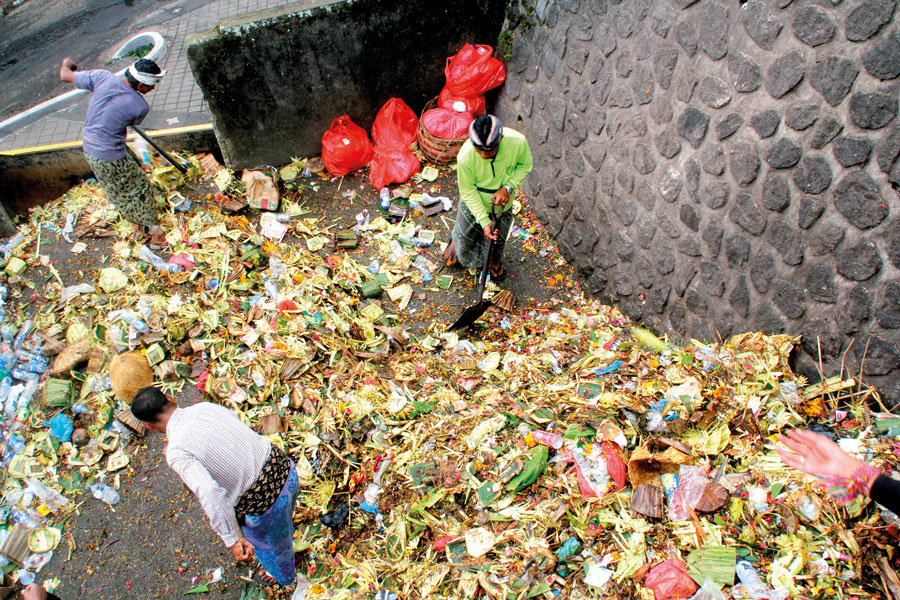Niskala Bali, an organisation on the island, is taking charge in the fight against post-ceremony waste in Bali.
Offerings can be seen everywhere in Bali. Tiny coconut leaf baskets (canang sari) of rice, fruits and flowers are presented in front of every house, office, in the temples and shrines, and even on the dashboards of cars. For the Balinese, a ceremony is essential in their daily lives. There are over 3,000 ceremonies per year happening on the island, and the Balinese continue their ways in dedication to the philosophy of “Tri Hita Karana”; the harmony between God, people and nature.
Unfortunately, it seems we are seeing a declining trend in the practice of this philosophy. Based on a survey, 75% of Balinese youngsters feel that the “Tri Hita Karana” no longer applies during ceremonies; they believe that harmony with nature is no longer present. These relatively new opinions stem from the youth seeing the huge amounts of waste created by ceremonies.

The amount of waste produced from a single ceremony can up to 100 kilograms. Although there have been some attempts to solve this issue, most of the Balinese are clueless about how to treat post-ceremonial waste. They normally take the easiest way out, which is either to burn or dump the waste – many of it ending in landfills, rivers and eventually out to sea. While traditions and ways of performing ceremonies have not changed, the materials used in these ceremonies have. Traditional, 100% biodegradable, natural elements have been replaced by synthetic and plastic materials that present a serious environmental hazard.
From this viewpoint, we can see a lack of understanding on how to manage the waste and the adequate facilities to manage the post-ceremonial waste. This is what motivated NISKALA BALI to launch a waste management service for Balinese ceremonies. Their mission is simple; to create zero waste ceremonies by managing the waste properly.

Back in March 2017, they pitched this idea in the Global Hackathon competition, organised by the United Nations (UN), and won 1st place at the international level. This opportunity led them to the UN Headquarters in New York to present the idea in front of the President of UN General Assembly, Peter Thomson. That moment marked the beginning of their journey.
This is how the system works. They install some separation bins for the different categories of waste. To assist people at the ceremony, a waste coordinator will be available at every service. Next, they send the waste to their partners who will recycle and compost them to be valuable products. Niskala has already partnered with the leading recycling and composting services on the island, EcoBali Recycling and Bali Compost Crafters.
Realising the behaviour of burning or dumping waste that is already rooted in the Balinese lives, it may take time to see the impact of this new movement. But there is huge potential in changing told ways through ceremonies, and the Niskala Bali team will work side-by-side with the high priests of the temple to be influencers of their local communities.

Currently, their main target is temples, and they offer a free-of-charge service to clear up the waste after ceremonies. They are focusing on a pilot project in one of the biggest temples in Denpasar. In order to fund this project, they also provide the same service for the private ceremonies, such as Balinese weddings and tooth filings, etc. Niskala is aiming to provide their service to 4 temples and 50 individual ceremonies by the end of this year.
However, at the end of the day, life is all about making decisions. We can continue creating pollution or find a solution through an action. It is up to us to decide!
Niskala Bali
Address : Jalan Katrangan 51, East Denpasar
Telephone : +62 812 84683952
www.facebook.com/Niskalabali









